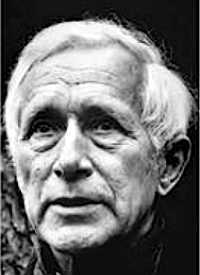CONTROVERSIES
Criticism of Schneerson, limited among non-Jews mainly to his supremacist views, has been more varied among Jews. Some have questioned his mental competency and his veracity, criticized his professional manners and condemned his theology. Perhaps because they did not believe in the authenticity of Schneerson’s mid-life born again experience, many senior non-Lubavitch Chassidim opposed or took a neutral stance toward him throughout his reign. In an interview conducted on Israeli television shortly before Schneerson suffered a debilitating stroke, two years before his death, an important Orthodox Israeli philosopher, Yeshayahu Leibowitz, was asked what he thought of the Rebbe’s messianism. Leibowitz’s response was characteristically sarcastic: “There is only one thing that I cannot figure out about this man[Schneerson], and that is whether he is a psychopath or a charlatan. This is the only thing I just cannot decide—this kind of degeneracy, of phony prophets and false messiahs, is as ancient as Israel itself.”
A tenet in the shared code of professional behavior among Reform and Conservative rabbis and congregations includes the principle that one does not solicit members of each other’s congregations, regardless of synagogues or affiliation. Chabad, however, ignored this tenet. Indignant that Chabad was apparently proselytizing members of their congregations, the associated clergy of Pittsburgh congregations stated in a righteously indignant declaration:
We believe that people have a right to belong to the religious institutions that they desire without being called, visited or solicited to leave and support other places of worship and learning. Sadly, it has been the experience of several Reform congregations in the Pittsburgh area that the connections between congregants and rabbi are not always honored by those who speak on Chabad’s behalf. This has led to disruptions in congregational life, to ill feeling and needless strife. (See here)
The general Jewish community has been amused or indifferent to the proclamation by Lubavitch that Jewish belief requires belief in the messiahship or even the divinity of the Rebbe. Soon after his death members of Chabad-Lubavitch in fact were divided into two categories: the “Elokists” who believe that Schneerson is God and the “Mishichists” who hold that he is the messiah. Needless to say, some Jewish professors of theology interpreted this belief to be heretical and idolatrous and were thus in a quandary. They admitted that Schneerson’s success could not be denied: after all, he established a worldwide empire of followers, spread Orthodoxy to places where it had never been known, and established a most effective fund raising organization. To criticize him would be interpreted as an attack on his achievements.
Many Jews who are not Orthodox and maybe not even very observant praise Chabad and continue to fund its activities. They admire Chabad’s institution building, the devotion and selflessness of its emissaries, and its bold representation of Judaism in the public square. In addition, they carry with them nostalgia for their east European past and a sense that Lubavitch is the most authentic version of historical Judaism still extant. Finally, though perhaps not devout themselves, they hold the conviction that Orthodoxy is the firmest guarantor of a Jewish future.[33]
Though finding fault with Schneerson might be construed as an assault on his reputation and accomplishments, many non-Orthodox Jewish theologians, nevertheless, have been concerned about the similarities of Chabad messianic theology to Christology which they fear causes it to be heretical and even apostatical. To claim the messiahship of the Rebbe undermines the first line of defense against Christian missionizing, which has been that Judaism cannot accept a messiah who dies in the midst of his redemptive mission. Lubavitch texts after Schneerson’s death contain references to essence, omniscience, and omnipotence—all Christian concepts. With the decline of a pervasive Christian threat, familiarity with messianic texts and sensitivity to messianic deviationism has waned to the vanishing point even among learned Jews. Read more








